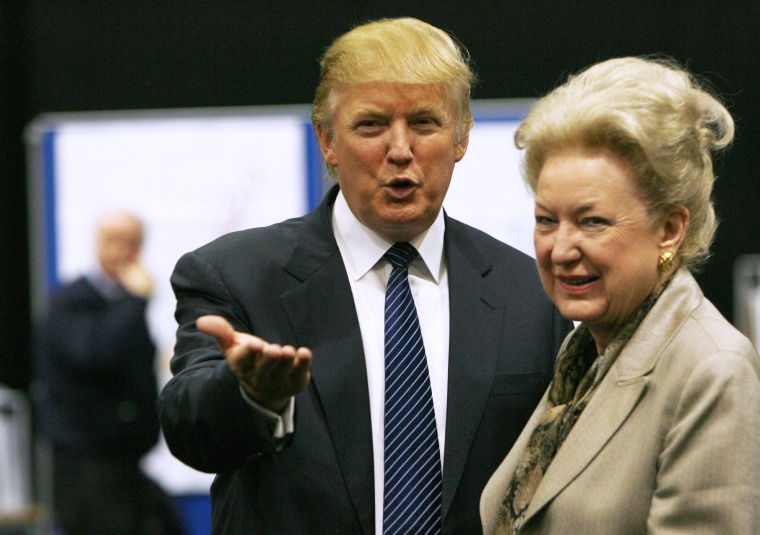It was six months ago when the New York Times first published a devastating report on Donald Trump's finances. As regular readers may recall, the newspaper's exhaustive research uncovered evidence of "dubious tax schemes" and "outright fraud" that Trump exploited to receive hundreds of millions of dollars from his father.
The findings painted a picture in which the president, far from the self-made man he pretends to be, relied heavily on allegedly illegal handouts. At the heart of the story was the prospect of criminal fraud, criminal tax evasion, and money laundering, which the American president exploited to fuel his rise to power.
Donald Trump, however, was not the sole beneficiary of his family's scheme. Consider, for example, the president's sister.
President Trump's older sister, Maryanne Trump Barry, has retired as a federal appellate judge, ending an investigation into whether she violated judicial conduct rules by participating in fraudulent tax schemes with her siblings.The court inquiry stemmed from complaints filed last October, after an investigation by The New York Times found that the Trumps had engaged in dubious tax schemes during the 1990s, including instances of outright fraud, that greatly increased the inherited wealth of Mr. Trump and his siblings. Judge Barry not only benefited financially from most of those tax schemes, The Times found; she was also in a position to influence the actions taken by her family.
As Rachel explained at the top of last night's show, this is a controversy in which a federal appellate judge may have personally benefited -- to the tune of tens of millions of dollars -- from an alleged tax avoidance and fraud scheme that was run out of her family's business. It was a scheme that made Maryanne Trump Barry the target of a judicial conduct counsel probe.
It's the same scheme that appears to have benefited her brother -- who's the current president of the United States.
The judicial conduct inquiry into Maryanne Trump Barry's finances is now over, not because the judicial conduct probe ran its course and led to exoneration, but because she agreed to step down from the federal bench.
The last time I checked, her brother remains in office.
And speaking of her brother, these developments surrounding Maryanne Trump Barry raise anew a related question: if Donald Trump benefited from an alleged tax avoidance and fraud scheme, maybe we ought to get a look at his tax returns?
As things stand, the law requires the administration to hand over the materials, but the president's team is resisting compliance with that law.
E.J. Dionne is asking the right questions: "Why is Trump so insistent on withholding his tax returns from an American public that has rightly grown accustomed to knowing how a president makes -- and has made -- his money? What is in those returns? The Trump administration, it seems, will use any means necessary to avoid answering those questions."
